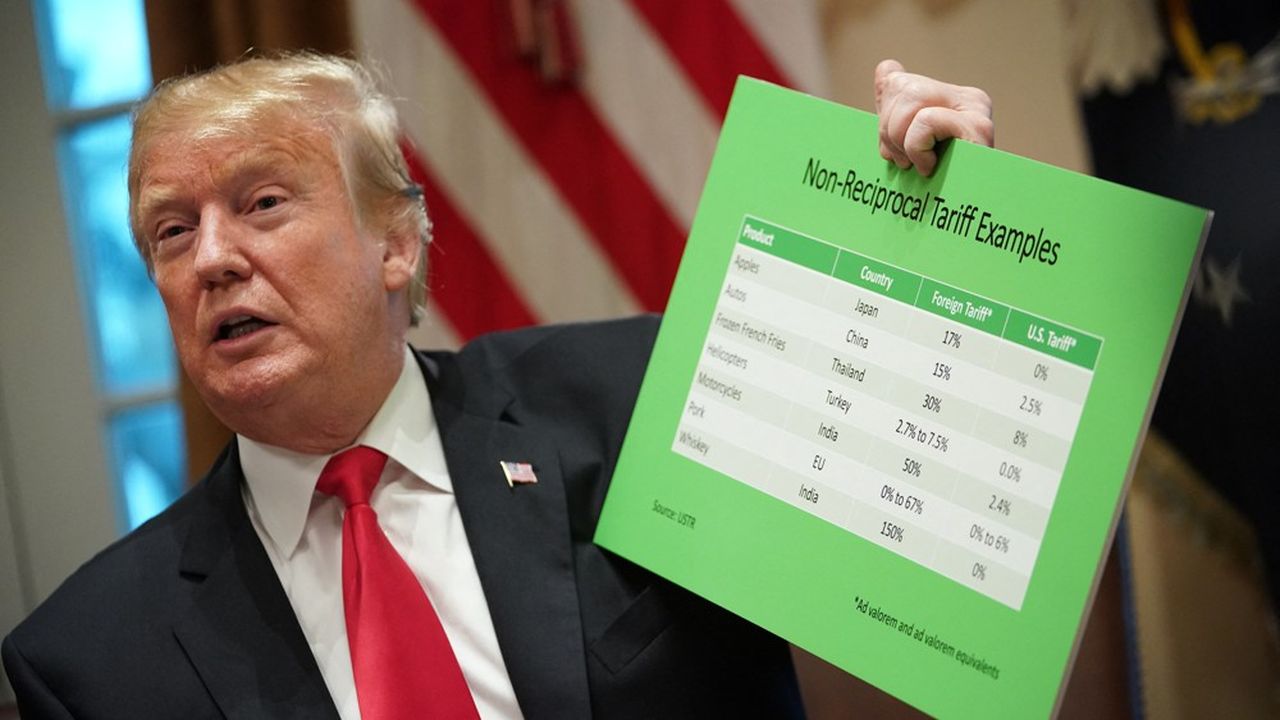Luxembourg Royal Family Denies Media Claims of $4 Billion Wealth ...
"Working While Sick": A Hidden Crisis in Luxembourg’s Labour Market ...
Luxembourg Not Immune to Negative Spillover from U.S. Economic Policies, STATEC Warns ...
Luxembourg’s Start-Up Support Programs: Golden Opportunities for the Entrepreneurs of Tomorrow ...
Luxembourg Unveils New Tax Credit for Start-Up Investment: A Bold Step Toward Innovation-Driven Growth ...
Travel from Luxembourg to London Now Requires Pre-Authorisation: UK Introduces Mandatory ETA from April 2 ...
Luxembourg Royal Family Denies Media Claims of $4 Billion Wealth

Luxembourg – April 1, 2025
The Administration of the Grand Duke’s Assets has officially rejected recent reports from various international media outlets—particularly French sources—regarding the supposed wealth of the Grand Ducal Family, calling them "inaccurate" and "misleading." In a formal statement released Monday, the administration clarified that the net worth of the Grand Ducal Family represents only a "small fraction" of the figures quoted in the press, which estimated their fortune at over $4 billion.
Over the past few days, several media reports, often citing unverified or anonymous sources, claimed that the Luxembourg Grand Ducal Family (Famille grand-ducale luxembourgeoise) is among the wealthiest royal households in Europe. These reports prompted a swift response from the Administration des Biens du Grand-Duc, which emphasized the need for accuracy and distinction between personal assets and public or national heritage.
"The net value of the Grand Ducal Family’s private assets is only a small portion of the $4 billion figure mentioned by the media," the statement read. The administration added that many of the properties and valuables attributed to the family in these reports are, in fact, part of Luxembourg’s national heritage, belonging to the state or public institutions, not the royal household personally.
The administration also highlighted that, in accordance with the financial privacy rights afforded to all Luxembourg citizens, the Grand Ducal Family is entitled to keep its private financial affairs confidential and "will not disclose detailed information about its personal wealth."
This is not the first time the Grand Ducal Family has faced such speculation. Similar claims have surfaced in the past and have been repeatedly refuted by the palace.
Grand Duke Henri, who has reigned since the year 2000, serves as the symbolic head of Luxembourg’s constitutional monarchy. Known for his non-partisan and ceremonial role, he has consistently refrained from commenting on matters related to personal wealth or finances.
The publication of this official statement marks a rare and direct rebuttal to mounting media speculation—an unusual move for a family that traditionally avoids public discourse on private matters.
"Working While Sick": A Hidden Crisis in Luxembourg’s Labour Market

Luxembourg – April 1, 2025
In its latest report, the Chambre des Salariés (CSL)—Luxembourg’s chamber of employees—has raised serious concerns over a growing yet often overlooked phenomenon in the country’s workforce: présentéisme, or the practice of showing up to work despite being unwell. According to the CSL, this behaviour has become widespread across various industries and job categories, with its negative consequences largely ignored by both employers and employees.
Working Through Illness: A Troubling Norm
Based on data published in the "Quality of Work 2024" study, workers in Luxembourg spend an average of 12 days per year at work while feeling unwell. In comparison, the official average for sick leave stands at just 5 days per year.
The study, which included a broad range of professions—from manual labour to academic and intellectual roles—found that présentéisme is far more prevalent among low-tier jobs. For example, employees in elementary positions reported working 34 days a year while sick, compared to just 14 days for those in more qualified roles.
Job Hierarchy and Psychological Pressure
The findings suggest that an employee's position within a company directly influences the pressure they feel to show up sick. Among executives, senior managers, and business owners, the average number of sick working days drops to 9 days per year.
In a statement sent to the press last Thursday, the CSL noted:
“Présentéisme is especially common in jobs with more physically or psychologically demanding conditions. The fear of losing one’s job or being penalised is a major factor driving this behaviour.”
Interestingly, high-level professionals not only report fewer sick workdays but also fewer actual sick leave days—averaging 3.3 days per year, compared to 7.7 days for lower-tier roles. This gap underscores that inequality in the workplace manifests more clearly in presenteeism than in official absenteeism.
Hidden Costs That Outweigh Sick Leave
According to research reviewed by France's DARES agency, the hidden costs of working while sick can exceed those of sick leave itself. The CSL warns that this phenomenon not only increases the risk of workplace infections but also leads to reduced productivity, more errors, lower morale, job dissatisfaction, burnout, and higher turnover rates.
The issue is particularly acute during times of economic uncertainty, when employees feel compelled to remain at work out of fear of job loss. Such stress undermines personal well-being and fosters an atmosphere of unhealthy competition and anxiety among colleagues.
Organisational Culture Must Change
The CSL stresses that in many Luxembourg companies, the culture of “working while sick” has become an unwritten rule that needs urgent revision. Rather than implicitly encouraging such behaviour, employers should focus on prevention, eliminating stigma, and supporting healthy, responsible reintegration into the workplace.
“These fundamental principles,” the statement reads, “must be placed at the heart of corporate and public policy to combat présentéeisme and mitigate its harmful effects.”
Despite expert warnings, it remains uncertain whether the employer community will heed these concerns. However, one thing is clear: reforming workplace culture in Luxembourg has never been more critical.
Luxembourg Not Immune to Negative Spillover from U.S. Economic Policies, STATEC Warns

Luxembourg – April 1, 2025
Despite its relatively low volume of direct exports to the United States, Luxembourg may still be vulnerable to indirect economic repercussions stemming from current U.S. government policies—particularly in light of the protectionist measures adopted by the new administration. This warning was issued by STATEC, Luxembourg’s official statistics and economic analysis agency, in its latest “Conjoncture Flash – March 2025” report.
Tariff Hikes Raise Concerns Over Global Economic Stability
At the heart of STATEC’s concerns is the recent decision by former U.S. President Donald Trump to raise import tariffs. The stated goals of this move are to “reduce the U.S. trade deficit, shield domestic industry from unfair competition, and incentivize local production.” However, the report cautions that such policies often provoke retaliatory measures from affected countries, heightening the risk of global trade wars.
Economic models and impact assessments reviewed by STATEC suggest that these protectionist strategies could lead to a decline in global trade volumes, slower economic activity, and increased inflationary pressures. Since the announcement of the tariff changes, financial markets have trended downward, consumer confidence in the U.S. has dipped, and the U.S. dollar has significantly depreciated against the euro.
Indirect Risks for Luxembourg’s Open Economy
While Luxembourg's direct exports of goods and services to the U.S. remain limited, analysts caution that the country may still suffer from reduced American demand for European products, particularly those from Germany, Luxembourg’s largest trading partner.
STATEC notes that "U.S. trade policies, particularly those targeting the German automotive sector, may indirectly affect the Luxembourg economy." Germany’s car industry—now in the crosshairs of U.S. tariffs—has deep economic ties with Luxembourg. A slowdown in German auto exports could have ripple effects on Luxembourg’s supply chains, service providers, and financial institutions.
Uncertainty Ahead and the Need for Strategic Preparedness
With the U.S. continuing to adopt a more nationalist and protectionist stance, STATEC urges Luxembourg’s government and private sector to stay alert to global shifts and prepare for a range of scenarios. As many nations begin exploring strategies to diversify away from the U.S. market, Luxembourg must also consider how to reduce its exposure to potential economic shocks.
The report concludes by underlining a sobering truth: in an interconnected global economy, even countries with minimal direct trade can feel the impact of decisions made by major powers. Luxembourg, despite its size and limited exposure, is not immune.
Luxembourg’s Start-Up Support Programs: Golden Opportunities for the Entrepreneurs of Tomorrow

Luxembourg – April 1, 2025
In an effort to stimulate economic development, foster innovation, and create jobs, the Luxembourg government has unveiled a diverse portfolio of financial support programs aimed at new and emerging businesses. These initiatives—ranging from direct subsidies and advisory services to investment grants and digital transformation programs—offer a robust foundation for the sustainable growth of small and medium-sized enterprises (SMEs).
Below is a comprehensive overview of the most important support schemes currently available for start-ups in Luxembourg:
1. Start-Up Launch Grant (Aide à la primo-création d’entreprise)
This non-repayable grant is designed for individuals who have recently launched their businesses and are in the early development phase.
Amount: Up to €12,000 (€2,000 per month for 6 months)
Type: Non-repayable grant
Eligibility:Valid business permit issued less than 6 months agoCompletion of an approved business management course
2. Investment Subsidies for SMEs (Subventions à l’investissement pour PME)
This program targets SMEs in need of capital investment in equipment, infrastructure, or modernization.
Amount: Up to 20% of eligible costs (30% in designated regions)
Eligible Costs:Machinery and technical equipmentDevelopment or renovation of facilitiesAdoption of new production technologies and industrial innovations
3. Support for Digitalisation and Sustainability (SME Packages)
These packages aim to facilitate the digital and environmental transition of businesses by placing innovation at the core of development.
Programs Covered: Digitalisation and Sustainable Development
Funding: Up to 70% of eligible expenses
Goals:Implementing digital toolsImproving energy efficiencyReducing environmental impact
4. Aid for Young Innovative Enterprises (Aide aux jeunes entreprises innovantes)
Tailored to start-ups engaged in innovation, technology, or research and development.
Type of Aid:Non-repayable grantRepayable advanceEquity investment
Eligibility:Business must be less than 5 years oldActive in innovation or R&D
Funding: Up to 70% of eligible costs
5. Subsidies for Advisory Services (Aides pour services de conseil)
Companies can access professional consultancy support in key business areas.
Funding: 30% to 50% of consultancy costs
Eligible Fields:Business strategyMarketing and brandingDigitalisationDomestic and international market expansion
6. Support for Trade Fair Participation (Aide à la participation aux foires et salons)
Designed to help companies expand their international visibility by supporting participation in trade shows and exhibitions.
Eligible Expenses:Booth rentalTransportationAccommodationPromotional materials
Funding: Up to 50% of total costs
7. Fit 4 Digital & Fit 4 Digital Packages
A two-phase initiative led by Luxinnovation in collaboration with the Ministry of the Economy, aimed at supporting small businesses in embracing digital transformation.
Phase 1: Free digital assessment (valued at €5,000)
Phase 2: Up to €5,000 in subsidies for implementing digital tools such as websites, CRM systems, automation solutions, and online sales platforms
Eligibility: Fewer than 50 employees
SIMOURQ: Your Strategic Partner in Securing Government Support
In this landscape of opportunity, entrepreneurs and start-up founders in Luxembourg can turn to SIMOURQ for professional guidance and full-spectrum support. SIMOURQ assists clients with:
Company formation and legal structuring
Preparation and submission of documentation for government support
Follow-up on subsidy applications and procedures
Beyond advisory services, SIMOURQ provides a wide array of specialized solutions through its professional divisions, including:
Design and printing of marketing materials and branding assets
Website development and digital solutions for businesses
Multilingual content creation and communication services
Official and technical translation
Book publishing and cultural magazine production
Independent multilingual media under the SIMOURQ news platform
For more information, a free initial consultation, and to begin your journey toward receiving state support, please visit SIMOURQ’s official website:
👉 www.simourq.com
SIMOURQ: Empowering entrepreneurs at the heart of Europe.
Luxembourg Unveils New Tax Credit for Start-Up Investment: A Bold Step Toward Innovation-Driven Growth

Luxembourg – April 1, 2025
The Luxembourg government has announced a new initiative aimed at encouraging residents to invest in innovative start-ups and emerging businesses. The program includes the introduction of a dedicated investment tax credit (crédit d'impôt) for eligible investors. While the exact amount and ceiling of the credit are still under development, officials confirmed during a press conference that the measure will be subject to a defined cap to ensure budgetary responsibility.
The announcement was made jointly by Lex Delles, Minister of the Economy, and Gilles Roth, Minister of Finance, who presented the tax credit as part of a broader 10-point strategy to support the country’s innovation ecosystem.
A Targeted Boost for Innovation and the Future Economy
The new tax incentive is one component of a comprehensive national policy crafted by Luxembourg’s ruling coalition, made up of the CSV and DP parties. The strategy aims to foster the growth of start-ups, scale-ups, and spinoffs—companies born from public research and designed to commercialize breakthrough innovations.
According to government officials, the program will focus on key sectors such as cybersecurity, deep tech, sustainable development, healthcare, and fintech. Luxembourg already hosts more than 280 fintech companies, signaling the sector’s importance to the country’s economic landscape.
€300 Million Public Investment Through SNCI
As part of this strategic plan, the government also confirmed that the Société Nationale de Crédit et d’Investissement (SNCI) will inject €300 million into start-up development over the next five years through the Future Fund I & II. These funds will provide financial support of up to 80% of project costs, capped at €200,000 per company.
Minister Delles emphasized that public investments in these funds will be managed with full transparency, with regulatory mechanisms in place to ensure proper use of public resources. Minister Roth added that the scheme is designed as a public-private partnership, ensuring long-term sustainability and economic return.
Tax Incentives for International Talent
In addition to financial support for businesses, the government plans to attract skilled international professionals to fuel further growth in the innovation sector. A new expat tax regime will allow qualified foreign workers to pay only half the income tax on the first €400,000 of annual earnings, for up to eight years.
This measure is intended to enhance Luxembourg’s competitive edge in the European labour market, especially in areas suffering from shortages of qualified talent.
Housing Crisis Remains a Challenge
Despite these promising initiatives, both ministers acknowledged that the housing shortage continues to pose a major obstacle to economic development and talent attraction. However, they reiterated that the government has launched several housing projects and that expanding the availability of affordable homes remains a top priority in the coming years.
Conclusion
With this new 10-point action plan, the Luxembourg government is not only supporting start-ups at critical stages of development but also fostering an ecosystem that promotes tax incentives, private investment, international recruitment, and sustainable growth.
The initiative underscores a clear political commitment to making Luxembourg one of Europe’s leading innovation and entrepreneurship hubs, positioning the country as a model for future-ready economic policy.
Travel from Luxembourg to London Now Requires Pre-Authorisation: UK Introduces Mandatory ETA from April 2

Luxembourg – April 1, 2025
Starting Wednesday, April 2, 2025, all citizens of the European Union—with the exception of Ireland—will be required to obtain an Electronic Travel Authorisation (ETA) before traveling to the United Kingdom. This new requirement is part of the UK government's post-Brexit immigration strategy, aimed at enhancing border security and streamlining entry procedures.
A Legal Requirement, Even for Short Visits
According to the UK Home Office, European travelers, including Luxembourg residents, must apply for an ETA before departure. Similar to the ESTA system used by the United States, the ETA is processed digitally and linked to the traveler's passport.
The current cost of the ETA is £10 (approximately €12). However, as of April 9, the fee will increase to £16 (around €19). Applications can be submitted via the official UK ETA mobile app or the government website (gov.uk), and require a valid passport photo and a facial image.
Two-Year Validity with Unlimited Entry
Once approved, the ETA is valid for two years, allowing unlimited entries into the UK within that period. However, each individual stay must not exceed six months. A new ETA is required if the traveler’s passport changes. While decisions are typically issued within minutes, UK authorities advise applying at least three working days in advance of travel to accommodate rare cases requiring additional checks.
The ETA is mandatory for all travelers, including infants and children. An exemption applies only to French students under 18 traveling as part of official school trips.
Who Is Exempt?
The following categories of travelers do not require an ETA:
UK or Irish passport holders
Permanent residents of the United Kingdom
Transit passengers using select airports—such as Heathrow or Manchester—who do not pass through UK border controls
However, in most other UK airports, even short stopovers will require travelers to hold a valid ETA.
A System with Global Reach and Clear Objectives
The ETA system was first rolled out in 2023 for citizens of Qatar, before expanding in 2024 to include members of the Gulf Cooperation Council and around 50 other countries, including the United States, Canada, and Australia. According to the UK Home Office, over 1.1 million ETAs had been issued by the end of 2024.
On March 5, Seema Malhotra, Minister of State for Migration and Citizenship, stated that the expansion of the system reflects the UK’s "commitment to securing borders through technology and innovation."
Europe to Follow Suit in 2026
The European Union is also preparing a similar system known as ETIAS (European Travel Information and Authorisation System). Expected to launch in 2026, ETIAS will apply to travelers entering 30 European countries, including all Schengen Area members. Like the UK’s ETA, it will require travelers to obtain electronic authorisation prior to arrival.
Conclusion
From now on, traveling to the UK will involve additional administrative steps for European citizens, including residents of Luxembourg. With the British government tightening entry regulations, travelers are strongly advised to familiarise themselves with the new requirements, apply in advance, and ensure all documentation is in order before booking tickets or finalising travel plans.
The introduction of ETA marks a significant change in post-Brexit mobility, and preparedness will be key to avoiding unnecessary disruptions.
